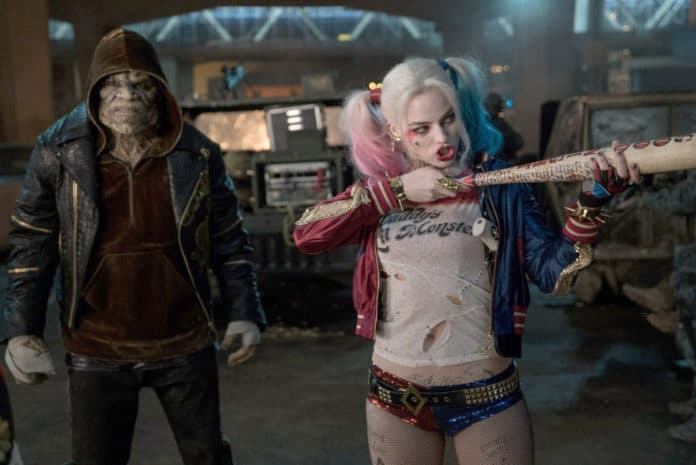The extended cut of “Suicide Squad,” now available for purchase digitally, is the version of the movie that should have debuted in theaters back in August.
Unlike the R-rated edition of “Batman v Superman: Dawn of Justice,” which didn’t add much to the film’s PG-13 theatrical release, “Suicide Squad’s” extended cut is a better movie than the original.
There is no extra action. What you saw in the theatrical release of “Suicide Squad” in terms of bat swings, gun blasts and boomerangs is what you get here. Action rarely gets left on the editing room floor in superhero (or in this case supervillain) movies. When studios are looking to make cuts, it’s usually a conversational scene. That’s the case with “Suicide Squad.” Surprisingly enough, though, those conversations between Squad members give these characters a little more depth.
Jared Leto was vocal that WB/DC left a lot of his Joker performance out of the movie, so many assumed that would make up most of the 13 extra minutes. Instead, the character to benefit most from the extended cut is Harley Quinn.
The theatrical release gave us the crazy Harley Quinn that those who grew up watching “Batman: The Animated Series” already knew would be there. In the extended cut, we get to see Harley trying to figure out what brought each of her squad-mates to their current bad-guy destinies. It’s a reminder that Harley, even after her transformation into a super-villain/anti-hero, is indeed still a doctor and one of the Suicide Squad’s brightest minds – which wasn’t as apparent in the theatrical version.
Those who felt the Joker was underutilized in “Suicide Squad” may still feel the same after watching the extended cut. Let’s not forget, there were many, including myself, who thought the Joker would be the main villain in this movie, and the reason for putting the Suicide Squad together (he wasn’t). Leto’s performance was mainly about introducing a new Joker to go along with Harley Quinn and possibly use for future “Batman” or “Suicide Squad” movies in the future.
The extra Joker we do get in the extended cut (alongside a pre-transformation Harley Quinn, who in this extra Joker scene is still Dr. Harleen Quinzel) is someone who just doesn’t have time for love. We learn that the Joker’s continued rejections of Harley Quinn’s romantic advances are part of what drove her insane. The fun part is trying to figure out why the Joker doesn’t want to be bothered. Is he that much of a jerk or does he love Harley enough that he’s trying to save her from what a life alongside him would be? Leto gets another scene here to portray the conflict in the Joker’s mind as he reluctantly realizes Harley Quinn is a part of him whether he likes it or not. This is, of course, the one factor above all that sets Leto’s Joker apart from any previous performance: His Joker’s in love. And it makes for great superhero movie/bad guy magic.
There’s also a little bit more of the brewing bromance between Will Smith’s Deadshot and Joel Kinnaman’s Rick Flag. Enhanced by Harley Quinn’s on-the-job psych evaluations, we get a little bit more of each of “Suicide Squad’s” supporting characters, including Diablo (Jay Hernandez), Katana (Karen Fukuhara), Captain Boomerang (Jai Courtney) and Killer Croc (Adewale Akinnuoye Agbaje).
Aside from “Suicide Squad” reviews like mine that came from the perspective of someone who is a fan of comic book culture, this movie was destroyed by most mainstream critics. If you agreed with those negative reviews, the extra 13 minutes here isn’t going to do anything to change your opinion of “Suicide Squad.” But if you’re someone who liked the movie, the extended cut should feel like a better version of something you already enjoyed.
According to Box Office Mojo, “Suicide Squad” finished its theatrical run earning $325 million domestically and an additional $420 million overseas (after reportedly costing $175 million to make), which should make WB/DC very happy with the financial result of yet another divisive DC Comics film.






